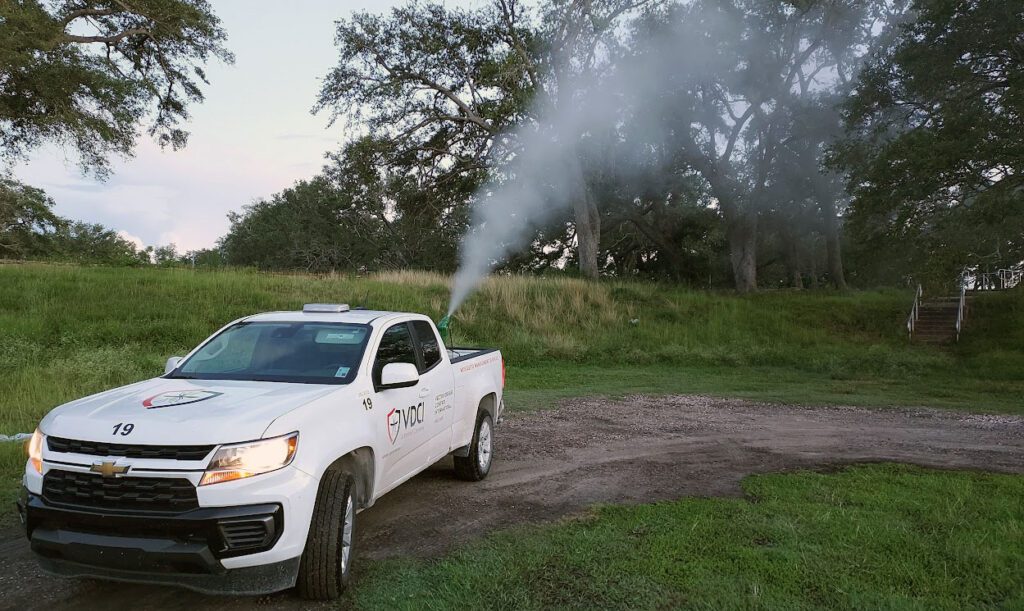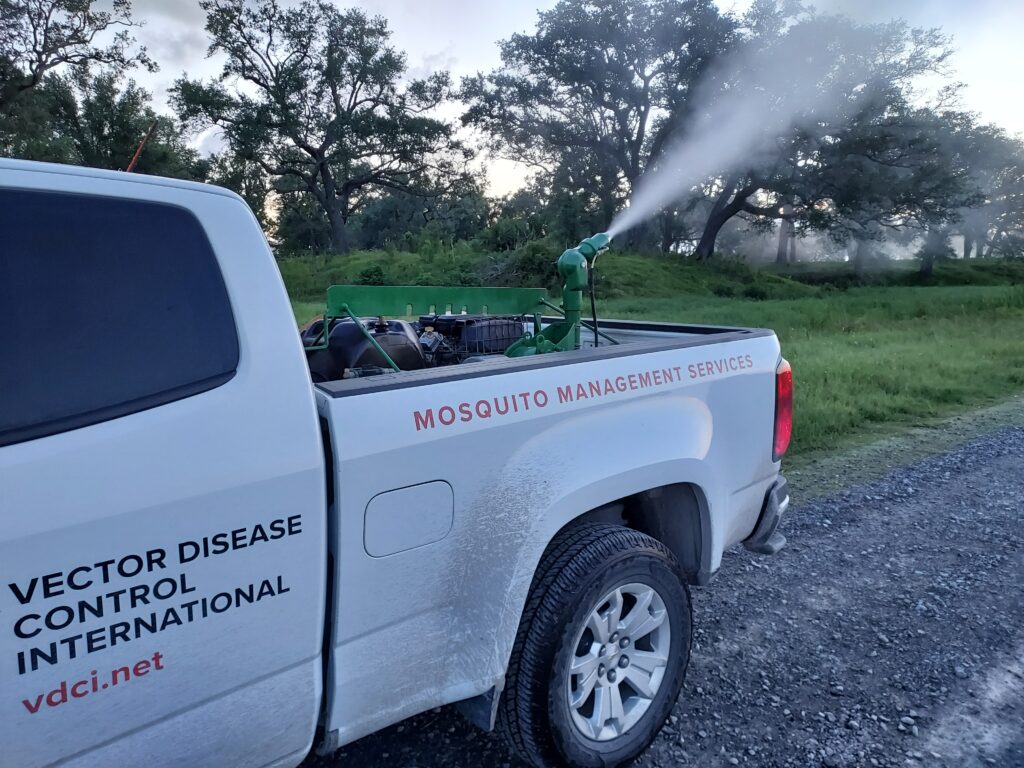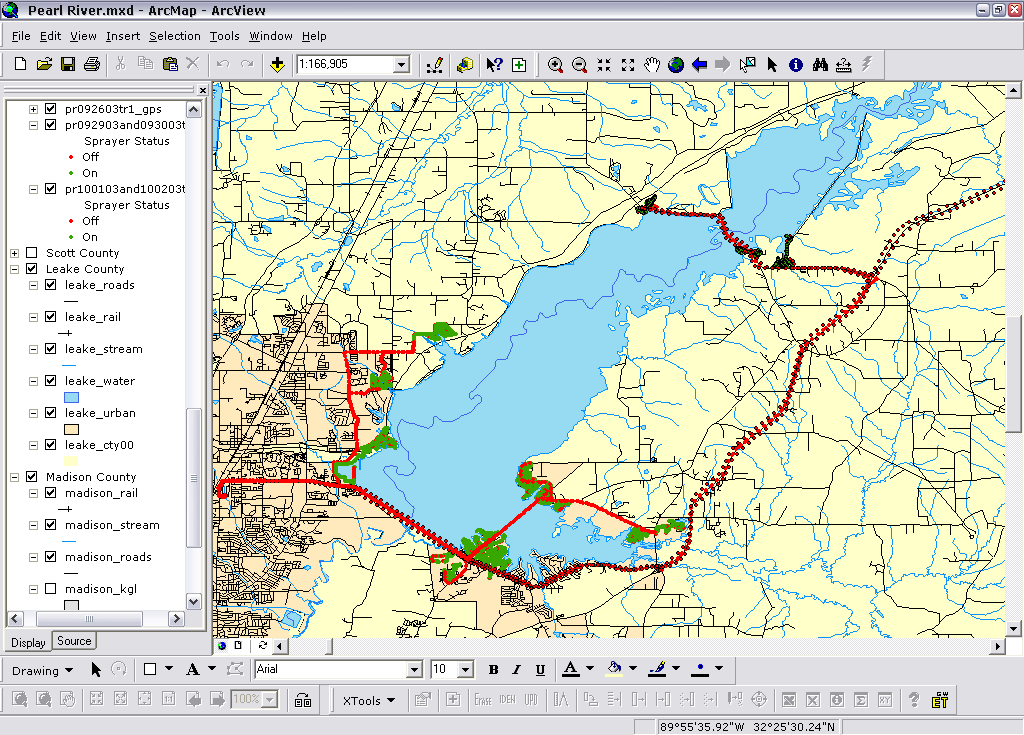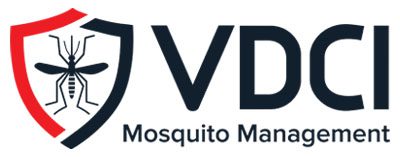ULV Mosquito Spraying Explained
Mosquito populations can get out of hand very quickly. Even in small numbers, mosquitoes can endanger communities by spreading infectious diseases like West Nile virus, Zika, and Yellow Fever. Through professional Integrated Mosquito Management (IMM) programs, experts are able to monitor population levels and take action when thresholds are surpassed. Often, this means applying EPA-registered adulticides through ULV spraying to keep mosquitoes in check. These products are an essential part of an environmentally-friendly Integrated Mosquito Management (IMM) program and offer an effective and low-risk solution to helping manage nuisance mosquito populations.
What is ULV Spraying?
ULV stands for ultra-low volume sprays. When applied with ULV equipment via truck, backpack foggers, or plane, adulticides remain suspended in the air as fine aerosol droplets. These droplets kill mosquitoes on contact as they fly through the target area. A primary benefit of ULV sprays is adulticide optimization. Very little product is necessary to treat large areas of land, typically less than one ounce per acre.

Are there any risks to using ULV spraying for mosquito control?
Numerous, peer-reviewed, articles indicate that ULV applications for mosquito control do not pose a significant risk to humans or non-target insects. In one study (Effects of single and multiple applications of mosquito insecticides on non target arthropods, Davis and Peterson, 2008), the researchers determined that “measurable and persistent biological effects on non-target arthropods, exposed to larvicides and adulticides applied via ULV sprayer would be small. Also in an article published by the CDC (Human Exposure to Mosquito-Control Pesticides — Mississippi, North Carolina, and Virginia, 2005), the researchers measured the pesticide metabolite concentrations in urine of people pre-and post- application. And it was determined that “ULV application in mosquito control activities did not result in substantial pesticide exposure to humans”. In contrast, they were able to show an “association between home and/or work application of pesticides and pesticide metabolite concentrations”. In other words, individuals are far more likely to have pesticide exposure from home and work-related uses of pesticides than from ULV mosquito control efforts.
In another study (A Human-Health Risk Assessment for West Nile Virus and Insecticides Used in Mosquito Management, Peterson et al., 2006), the researchers state, “Results from our risk assessment and the current weight of scientific evidence indicate that human-health risks from residential exposure to mosquito insecticides are low and are not likely to exceed levels of concern. Further, our results indicate that, based on human health criteria, the risks from WNV exceed the risks from exposure to mosquito insecticides.” This work is extremely important, as they were able to determine that the risk of adverse health impacts from contracting WNV is greater than the risk of health impacts from the pesticides used to control WNV vectors. This is just a small sample of the published scientific literature regarding the potential harmful effects of our mosquito control applications.

ULV Spraying as Part of a Professional IMM Program
Adulticides are an effective and necessary tool to combat mosquito populations. When applied as part of an IMM program, the products are also utilized alongside other important strategies, including larval control, public education, and surveillance and disease testing. These solutions help make adulticide applications more impactful while supporting more long-lasting results.
Professionals lean on the data compiled during surveillance and disease testing to inform their decision to intervene. Surveillance data is gathered through weekly trapping, and different types of traps can be used depending on the species that are being monitored. Once collected, each mosquito is identified and examined for disease. Understanding the unique species bionomics and disease threat helps professionals determine ULV spraying needs. Using science allows professionals to spray the right amount, at the right place, at the right time.
During the application process, GPS technologies play an important role. GPS tracking units create spray maps to help ensure even product coverage. This information can also be shared with the public. For successful control in large communities, ULV spray applications may be paired with residual “barrier” treatments via backpack applicators near homes and areas where mosquitoes tend to concentrate. Trucks and aerial equipment can also be used to target adult mosquitoes across large areas of land.

How VDCI Utilizes ULV Spraying
When used as part of a comprehensive Integrated Mosquito Management program, ULV spraying is a necessary and highly effective solution for reestablishing populations to more manageable levels. These tools and solutions can provide more long-lasting protection and reduce the risk of insecticide resistance. VDCI is committed to choosing strategies that support our goal to protect people, preserve the environment, and maximize the impact of our essential adulticide products.
We own and operate the nation’s most robust fleet of spray trucks, backpack sprayers, and aircraft dedicated to mosquito management and prevention. State entities, municipalities, and other community groups can rest assured that all equipment is properly calibrated and maintained to dispense proper droplet sizes at appropriate rates to achieve the highest level of mosquito control possible.
Contact Our Experts
Fill out the form below or call our experts at 866.977.6964 so that they can help you develop a custom IMM program to meet your community’s needs.
 Since 1992, Vector Disease Control International (VDCI) has taken pride in providing municipalities, mosquito abatement districts, industrial sites, planned communities, homeowners associations, and golf courses with the tools they need to run effective mosquito control programs. We are determined to protect the public health of the communities in which we operate. Our mosquito control professionals have over 100 years of combined experience in the field of public health, specifically vector disease control. We strive to provide the most effective and scientifically sound mosquito surveillance and control programs possible based on an Integrated Mosquito Management approach recommended by the American Mosquito Control Association (AMCA) and Centers for Disease Control and Prevention (CDC). VDCI is the only company in the country that can manage all aspects of an integrated mosquito management program, from surveillance to disease testing to aerial application in emergency situations.
Since 1992, Vector Disease Control International (VDCI) has taken pride in providing municipalities, mosquito abatement districts, industrial sites, planned communities, homeowners associations, and golf courses with the tools they need to run effective mosquito control programs. We are determined to protect the public health of the communities in which we operate. Our mosquito control professionals have over 100 years of combined experience in the field of public health, specifically vector disease control. We strive to provide the most effective and scientifically sound mosquito surveillance and control programs possible based on an Integrated Mosquito Management approach recommended by the American Mosquito Control Association (AMCA) and Centers for Disease Control and Prevention (CDC). VDCI is the only company in the country that can manage all aspects of an integrated mosquito management program, from surveillance to disease testing to aerial application in emergency situations.

